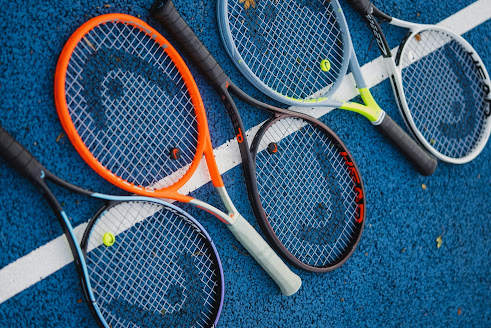"10 most common thoughts Tennis Players Have On The Court "
Tennis is a sport that demands not only physical prowess but also a sharp mental game. When you step onto the court, your mind is just as active as your body. Every point, every serve, and every rally triggers a series of thoughts that can influence your performance. In this blog post, we'll explore the 10 most common thoughts that tennis players often have on the court.
1. Focus on the Next Point
One of the most prevalent thoughts in a tennis player's mind is the constant focus on the next point. Whether you're serving or returning, your primary concern is how to win the upcoming point. This laser focus on the present moment is essential for success on the court.
2. Stay Calm and Composed
Tennis can be emotionally charged, with each point carrying significance. Thoughts of maintaining composure and staying calm, especially in tight situations, are common. Keeping emotions in check allows for better decision-making and execution of shots.
3. Evaluate Opponent's Weaknesses
Tennis is a mental chess match, and players are constantly assessing their opponent's weaknesses. Whether it's a backhand that tends to break down under pressure or a tendency to approach the net too aggressively, identifying these weaknesses is key to developing a winning strategy.
4. Adjusting Strategy
Adapting your strategy during a match is a crucial thought process. If your baseline game isn't working, you might consider hitting more aggressively or trying to come to the net more often. Being flexible and adjusting your game plan can be the difference between winning and losing.
5. Stay in the Present
In a sport where the pace is fast and the points are quick, staying in the present moment is a constant battle. Thoughts of past mistakes or concerns about the future can be detrimental. Tennis players strive to stay mentally present, point by point.
6. Keep Positive Self-Talk
Positive self-talk is a powerful mental tool. Tennis players often engage in an internal dialogue that boosts their confidence and maintains a positive mindset. Instead of saying, "Don't double-fault," they remind themselves to "Hit a strong first serve."
7. Stay Physically Fit
The physical demands of tennis are undeniable, and thoughts of maintaining fitness and energy levels are common. Staying hydrated, maintaining stamina, and preventing injuries are all part of the mental checklist during a match.
8. Anticipate Shots
Tennis is a game of anticipation. Players must constantly predict where their opponent will hit the ball and position themselves accordingly. The thought process involves reading the opponent's body language and making split-second decisions.
9. Stay Hydrated and Fueled
Thoughts of hydration and nutrition are especially crucial during long matches or in hot weather. Dehydration can lead to fatigue and decreased performance, so players must remind themselves to take sips of water and replenish their energy with snacks during changeovers.
10. Maintain Mental Toughness
Mental toughness is a cornerstone of successful tennis players. Thoughts of resilience, determination, and the ability to bounce back from setbacks are prevalent. Players remind themselves that the mental game is just as important as the physical one.
While these thoughts are common among tennis players, it's important to note that they can vary from player to player and match to match. Your personal mental dialogue may be influenced by your playing style, personality, and the specific circumstances of the game. The ability to manage these thoughts and maintain focus under pressure is what sets elite players apart.
Conclusion
Tennis is not just a physical battle; it's a mental one as well. The thoughts that run through a tennis player's mind during a match can significantly impact their performance. From focusing on the next point to staying composed under pressure, these common thoughts reveal the mental challenges and strategies that players employ on the court.
Understanding and managing these thoughts is a crucial part of mastering the mental game of tennis. By staying present, maintaining positive self-talk, and adapting your strategy as needed, you can improve your mental resilience and ultimately enhance your performance on the court. Tennis is as much a mental sport as it is a physical one, and developing a strong mental game is essential for reaching your full potential as a player.
also see:



Comments
Post a Comment